Summer with Monika (Movie): my first encounter with Ingmar Bergman.
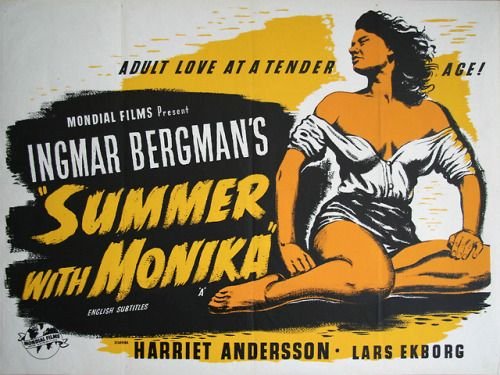
This was the director's first international recognition
A few days ago I saw Summer with Monika (Sommaren med Monika) by the acclaimed Swedish director Ingmar Bergman, whose work I didn't know about. This one movie was just enough for me to understand why he's one of the greatest directors of all time.
The film tells the story of Harry and Monika, two young people who meet at a café when he lights her a cigarette and decide to go to the movies that same night on their first date, like all lovers. A little later, as an established couple, both rebel (she at home, he at work) and decide to leave the city and go, by boat, to a small island to spend time doing nothing.
The magic of that dream and that supposed freedom in which they live is broken when they are forced to return because of the pregnancy of the girl. With this fact, the idyll begins to crack and to move away little by little, revealing the nature of both. For Harry, that trip to the island was like taking a vacation; now, logically, he understands that they have to go back, get a job, etc. But Monika doesn't. In the initial sequence, when they met at the cafe, one of the first sentences that Monika says to Harry is:
-Let's go, with no return. To see the world, do you feel like it?
Harry takes her to the movies and then to the islet. But that wasn't what she was referring to. Monika wants to be free. She went to that island to be completely free: no family, no work, no responsibilities, just being there. That's why, within it, bitterness, anger, frustration begin to take shape. The baby is the reason why she will not be able to continue doing what she wanted to do: now she must be a mother, a wife, dedicating her life to others more than to herself. The happy, cheerful and vivacious Monika of the beginning turns dark and irritable. It's her youth taking a stand, saying No! to grow up, to mature, to enter adulthood. Harry, on the other hand, is calmer. He looks for a job, studies at night and watches over his daughter, who's not looked after by the mother. And he only manages to endure his wife's irascibility until the day he finds her sleeping with another man, after which Monika leaves, leaving the child with her father.

It's a sad ending, very bitter. But honest. At a time when the industry told happy or final love stories that separated the characters despite loving each other deeply, Bergman showed another truth: love is fleeting. When Monika leaves him, Harry remembers the happy moments of that summer when everything seemed so promising. But that only lasted one summer. Love, like life, is ephemeral. It resonates for that, a scene in the film in which, when the lovers leave the cafe, one diner tells another:
- New loves bloom in spring.
The phrase remarks that spring is a season for love and that in the same way that seasons pass, love also.
All this makes Monika a memorable character, because although she's selfish, cruel and unfaithful, her biggest fault ends up being her honesty. She can't (or doesn't want to) pretend to be someone she is not and take that to the ultimate consequences.
The excellent script, co-written by Bergman with the author of the original novel Per Anders Fogelström, and the excellent directing, adds the filming of remarkable scenes, remembered by all those who have seen the tape. Among them, the one with Monika lying on the boat on the trip back to the city, or the scene of the break up, with Harry in the foreground and Monika in the background.
To round off the film, the performances of Lars Ekborg (Harry) and Harriet Andersson (Monika) are brilliant, which is why Bergman went back to working with both, especially with Andersson, who was present in almost a dozen of the director's films.
In the United States they added to the poster of the film, the phrase "The story of a bad girl". I think it's unfair to label her that way. Of course she's not the Ilsa Lund from Casablanca, but she was simply a girl who didn't feel ready to assume her status as a woman and wanted to remain young and free. So for the creation of that character, for the good script, the excellent performances, the iconic scenes within the work of the director and above all, the honesty of the story, I give him a 8/10 to this movie and I assure you that I will continue to review more of Ingmar Bergman's extensive cinematography. You should do that too.
Reviewed by @cristiancaicedo
Other posts that may interest you:
 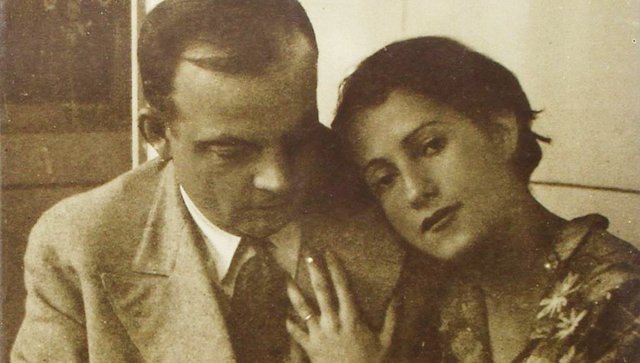 |
|---|
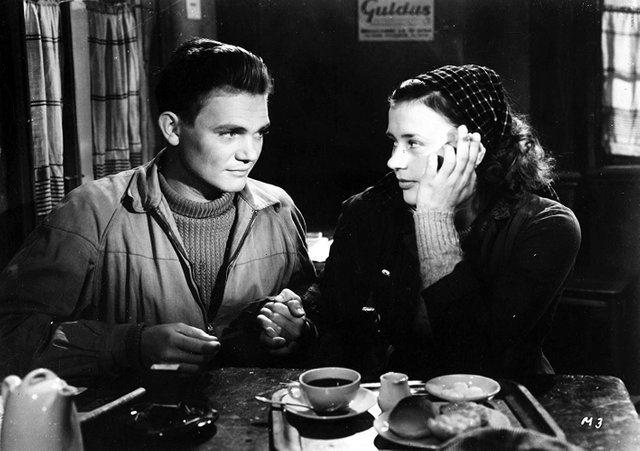
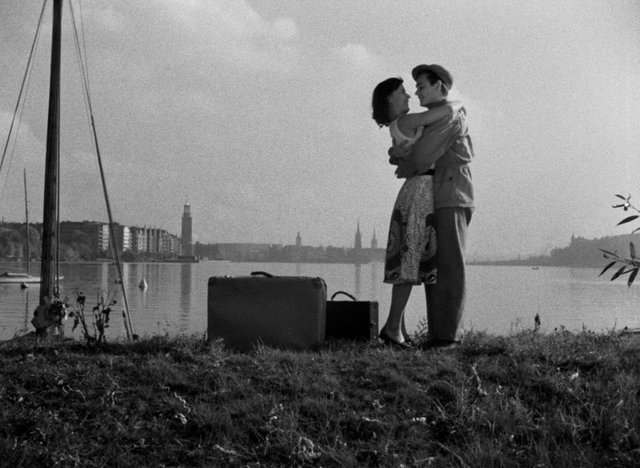
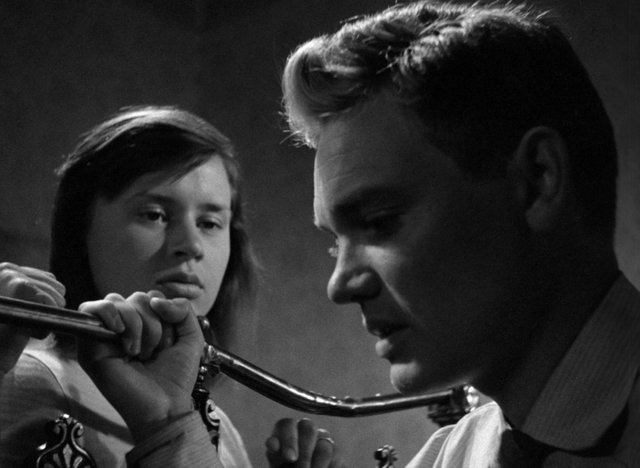
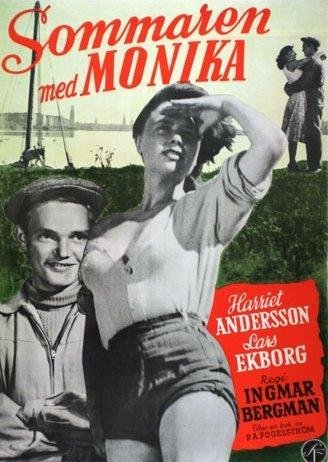
Congratulations! This post has been upvoted from the communal account, @minnowsupport, by cristiancaicedo from the Minnow Support Project. It's a witness project run by aggroed, ausbitbank, teamsteem, someguy123, neoxian, followbtcnews, and netuoso. The goal is to help Steemit grow by supporting Minnows. Please find us at the Peace, Abundance, and Liberty Network (PALnet) Discord Channel. It's a completely public and open space to all members of the Steemit community who voluntarily choose to be there.
If you would like to delegate to the Minnow Support Project you can do so by clicking on the following links: 50SP, 100SP, 250SP, 500SP, 1000SP, 5000SP.
Be sure to leave at least 50SP undelegated on your account.